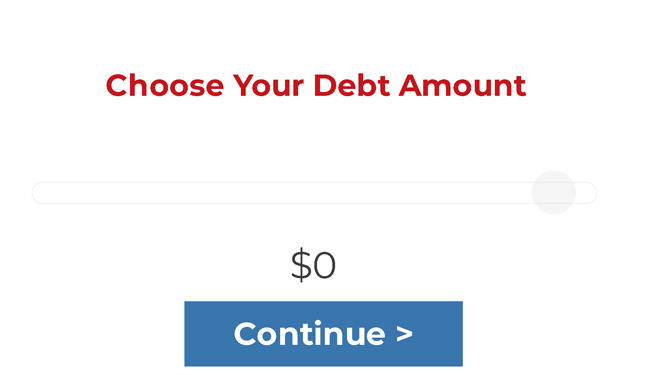Dealing with multiple debts can be tough, but consolidating your debt into one loan might provide some relief. You can find these loans from traditional banks, credit unions, and online lenders, and they come in two forms: secured and unsecured loans.
There are many things to consider when looking at secured vs. unsecured debt consolidation loans. Debt consolidation loans can help you save money and pay off your debt faster. By consolidating your debts into one loan with a lower interest rate, you can potentially save hundreds or even thousands of dollars in interest charges. consolidating your debts can also help you reduce your monthly payments and free up more cash flow each month.
How a debt consolidation loan works
If you’re looking to get out of debt, one option is to take out what’s called a debt consolidation loan. With this type of personal loan, you’ll roll several debts into one new loan product. The result is usually lower interest rates and monthly payments, and sometimes even just one payment instead of many.
If you’re looking to consolidate your debts and save on interest, it’s important to compare rates and make sure you’re getting the best deal possible. However, if you can’t qualify for the full amount you owe, it may be beneficial to focus on paying off the debts with the highest interest rates first.
Here is an example of how a debt consolidation loan could help you save on credit card interest:
- Credit card 1: $1,500 balance and 17 percent APR.
- Credit card 2: $2,000 balance and 15 percent APR.
- Credit card 3: $2,500 balance and 12 percent APR.
- Credit card 4: $3,000 balance and 21 percent APR.
Assuming you pay off your balances within 24 months, you will accrue $1,629 in interest charges. However, if you are approved for a 24-month personal loan in the amount of $9,000 with an APR of 8 percent, your total interest costs will be reduced to $573.25.
How to use a secured loan for debt consolidation
Secured loans are backed by collateral, which means there’s more risk for the borrower. However, depending on your financial situation, it could be worth it. You can use any of these products to get a consolidation loan.
Secured personal loan
If you have less than perfect credit, a personal loan can be a good option to access funds. However, there are some downsides to consider before taking out a personal loan. For example, personal loans often come with high-interest rates, and you could risk losing your collateral if you fall behind on the loan payments.
Home equity loan or home equity line of credit (HELOC)

There are two ways to tap into the equity in your home – with a home equity loan or a HELOC. With either option, you can borrow against the value of your home, using the equity as collateral.
Home equity loans and HELOCs both provide homeowners with access to extra cash. However, they work in different ways. A home equity loan gives you the entire amount you borrow in a lump sum, which you then repay in equal monthly installments. The interest rate is fixed. With a HELOC, you can pull funds out as needed, similar to a credit card. You only need to repay what you borrow from the HELOC, and the interest rate is variable.
If you’re looking for a way to consolidate your debt, you might want to consider a home equity loan or HELOC. These products usually offer more competitive interest rates than personal loans, and if you have a lot of equity in your home, you could be approved for a large amount. However, the biggest downside is that if you default on the loan, you could lose your home to foreclosure since these products act as second mortgages.
How to use an unsecured loan for debt consolidation
Another option is to take out an unsecured loan. Unsecured loans for debt consolidation purposes do not require any collateral in order to be approved.

Unsecured personal loan
Getting an unsecured personal loan could simplify your repayment process and lower your monthly payments. Many lenders offer quick approval and funding times, though you may have to pay an origination fee. Additionally, some lenders charge a prepayment penalty if you decide to pay off the loan before the end of the agreed-upon term.
Peer-to-peer loan
Peer-to-peer loans offer a unique alternative to traditional personal loans. Rather than being offered by financial institutions, they are extended by individual investors. This can provide faster funding times for borrowers, even if they have less-than-perfect credit. However, the tradeoff is that the borrowing costs may be higher than with a home equity loan. Additionally, some peer-to-peer loans come with shorter repayment periods.
Balance transfer credit card
If used correctly, a low or zero-interest rate introductory period can save you a fortune in interest on your high-interest credit card debt. However, it is important to make sure that the debt is repaid within the window of the introductory period in order to take advantage of this savings opportunity.
How to get a debt consolidation loan
There are many ways to consolidate your debt, but taking out a loan is one of the most common methods. If your credit score is in the mid-600s and your debt-to-income (DTI) ratio is below 45 percent, then lenders will be more likely to offer you competitive terms on a consolidation loan. However, if your credit score is lower than this, it doesn’t necessarily mean that your application will be denied – but it may mean that the terms of the loan will be less favorable, and the borrowing costs may be higher.
It’s important to remember that every lender has different eligibility requirements, so it’s always a good idea to check before you apply. This way you can make sure the lender you’re considering is a good fit.
Secured vs. Unsecured Debt Consolidation Loan: The Bottom Line

Debt consolidation can be extremely helpful in getting your finances under control. By consolidating all of your debts into one loan, you can save money on interest and pay off your balances faster. Before applying for consolidation, though, it’s important to compare secured vs. unsecured debt consolidation loans to decide which option is best for you. It’s also crucial to shop around, get pre-qualified without harming your credit score, and run the numbers to see if consolidating makes sense given your particular financial situation.






